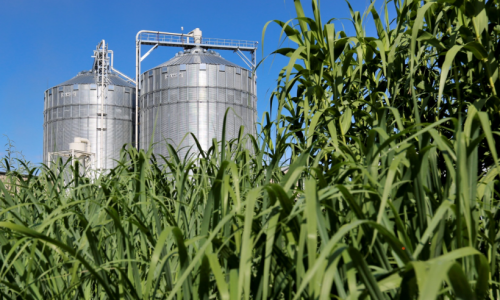The wine industry in Indonesia has seen a rise since the termination of the monopoly of wine imports by the government despite an ongoing effort by the House of Representatives (DPR) to deliberate a controversial alcohol prohibition bill.
The industry has seen a rise since the introduction of local wines abroad due to rising tourism and tourists’ wine preferences. Indonesian-produced wine has been highly noticed by global consumers for its local taste. Some major local players are located mainly in resort island Bali.
Rising local wine popularity
Locally-produced wine has gained popularity thanks to the government’s focus on tap on global tourism market. With more people visiting the famous Bali Island, foreign tourists also taste local culinary including wine. Surprisingly, many of them like local wines.
Since 2007, state-owned enterprise PT Sarinah has monopolized the import of alcoholic beverages, including wine. The monopoly has prompted business rivals to begin smuggling wine, causing the government to lose revenue from import tax.
The government planned to open import of alcoholic beverages, believing that such an effort would curb smuggling. Sarinah objected the plan, saying without the monopoly who would control the incoming liquor. “The price of legal alcoholic beverages is high because the tax is up to 400%. The government needs to solve this,” Sarinah spokesman M. Rusdi said on July 22, 2009, as quoted by kontan.co.id. Currently, there are 14 wine importers in the country.
According to Andri Fahcri, as quoted by Veronika Rahayu Irma Andjioe in her thesis paper at the Gadjah Mada University (UGM) in 2015, Indonesia’s wine market in 2012 worth IDR 650 billion with the main markets in Jakarta and Bali.
International trade data provider OEC (oec.world) said that in 2020, Indonesia imported US$ 8.81 million in wine, becoming the 97th largest importer in the world. At the same year, wine was the 766th most imported product in Indonesia. Indonesia imports wine primarily from: Singapore (US$ 2.26 million), Australia (US$ 1.38 million), Italy (US$ 1.34 million), France (US$ 1.14 million) and the United States (US$ 983,000).
The fastest growing import markets in wine for Indonesia between 2019 and 2020 were Italy (US$ 231,000), Canada (US$ 42,400) and Portugal (US$ 34,600).
OEC also reported that in the same year, Indonesia exported wine worth US$ 198,000, making it the 94th largest exporter of wine in the world. The main destination of wine exports from Indonesia are: Singapore (US$ 84,200), Timor-Leste (US$ 45,100), the United Arab Emirates (US$ 26,500), the Philippines (US$ 15,600) and China (US$ 8,370).
Local vs imported wines
The Indonesian wine brands can be found easily in Bali and Jakarta as their market targets. The 5 famous local wines are:
- Bellissimo
- Produced by Dima International Wines, Bellissimo is the largest wine producing company in Indonesia. The company offers 3 brands: Sparkling Moscato, Sparkling Dolce Rosso and Bellissimo Moscato. Bellissimo products have a thick sweet taste. The product is lighter because of the low alcohol content and the fragrant fruity aroma.
- Cape Discovery
- Produced in Singaraja, Bali, the wine is made from imported grapes and processed using modern techniques. Cape Discovery offers several variants, such as Sauvignon Blanc, Rosé, Cabernet Merlot and Shiraz.
- Hatten Wines
- Established in 1994 in Bali, the brand is well-known in the island. The company owns plantations along the north coast of Bali due to the very good quality of the soil. Hatten Wines uses black grapes of the French table grapes and Alphonse-Lavalleé for red wines while for the white wines it uses Belgium and Blue Probolinggo. Its famous products are rosé vintage, red wine, white wine and white brut.
- Sababay
- This is a wine product made in Buleleng, Bali. The wine producer has partnered with 175 local farmers, with yields that are paid 10 times higher. Sababay wine is well known in other countries and have been exported. One of its famous products is Moscato d’Bali, which has become the first Asian wine as an exclusive product in a restaurant and wine museum in France, La Cite du Vin. Other famous products include Mascetti, Ludisia and White Velvet.
- Baliwein
- Produced by CV Kayubatu since 2003, Baliwein is very popular among tourists because of its unique taste and various flavors such as sweet, sour and astringent. The wine is made of several types of fruit such as grapes, strawberries, soursop, snakefruit, cashew and ginger.
Meanwhile, wine import companies in Indonesia are:
- PT Pancaniaga Indoperkasa
- Established in 2002, the company is a premier sub distributor of wine & spirits. It imports wine from, among others, France, Italy, Portugal and Spain. The company imported brands such as Bach, Maset, Parcelas, Bericanto and Perrier-Jouët.
- PT Sarindo Makmur Sejahtera
- One of the largest and a registered alcoholic beverage importer company in Indonesia, the company distributes wine and spirit alcoholic beverages in major cities. With a decade of experience, the company has imported alcoholic beverages from, among others, France, Italy and Spain.
- PT Pantja Artha Niaga
- Established in 2007, the company imports and distributes wine and spirit products to various cities in Indonesia
There are other companies that supply, distribute, import and export wine and other alcoholic beverages such as:
- CV Wijaya Abadi Wahana
- PT Andalan Bangun Sejahtera
Draft law may hinder wine industry growth
The House is still deliberating the alcohol prohibition draft law as an effort to have stronger laws governing alcohol production and consumption. Initiated by the Prosperous Justice Party (PKS), the bill – which aims at prohibiting the sale, distribution and consumption of alcoholic beverages with a content of more than 1% – is included in the House’s 39 national legislation program (prolegnas).
Business players in violation of the regulations would face a maximum of 10 years in prison and Rp 1 billion in fines. People found consuming alcoholic beverages would face up to 3 years in prison and Rp 50 million in fines. The bill also requires the government to use 20% of the tax revenue obtained from alcoholic beverages to educate people about the dangers of alcohol consumption and to rehabilitate alcoholics.
The Ministry of Trade Regulation No. 20/M-Dag/Per/4/2014 stipulated that alcoholic beverages may not be sold in locations close to places of worship, educational institutions and hospitals. Alcoholic beverages can only be sold in hotels, restaurants and bars, in accordance with regulations in tourism sector.
Risks in alcoholic beverage industry
There are still persistent problems that pose risks to the alcoholic beverage, including wine, industry:
- Limited production: The production of wine in Indonesia is still in early stage and still very low. There is a limited supply of wine, which can lead to higher prices and lower availability. Additionally, the quality of wine maybe inconsistent as the industry is still developing.
- Regulatory: The government imposes strict regulations on the production and distribution of alcohol, which can create barriers to entry for new producers. The regulations also can change suddenly, which can create uncertainty for businesses in the industry.
- Competition: The wine market is still small and new, but it is expected to grow in the coming years. Consequently, there may be an increased competition from both domestic and international producers, which could impact the profitability of Indonesian wine producers.
- Pandemic-related impacts: The COVID-19 pandemic has caused significant disruptions to the wine industry, including reduced demand, logistical challenges and changes in consumer behavior.









